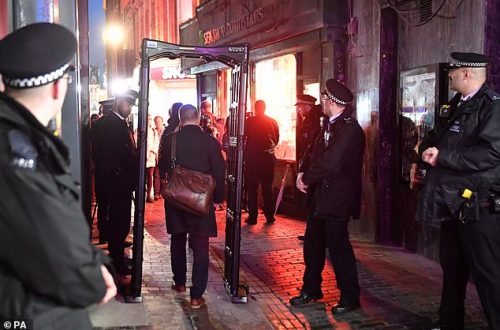The Independent reports that Ahmadis in Britain have been facing calls for their murder. One aspect of the report in particular leaps out:
Islamic satellite channels, a rapidly expanding but largely unregulated section of the broadcast media, have played an instrumental role in recent anti-Ahmadiyya campaigning. This week Ofcom criticised the Ummah Channel for a string of three programmes broadcast shortly before and after the Lahore massacre in which clerics and callers alike said Ahmadis should be killed.
In one programme “Seal of the Prophethood” a cleric declared: Until now, whenever one has claimed to be a prophet the Muslim nation has issued fatwa that he should be killed. It is only that at present Muslims are weak and they do not have the power to slice such a man in two parts.”
On 21 May the Ummah Channel broadcast a in which Islamic scholars debated the status of Ahmadis within Islam.
When a caller named Asim asked for a scholar to explain whether Ahmadis were legitimate Muslims the imam replied: “Since the time of the Holy Prophet (peace be upon him) the Sahiba [knowledgeable scholars] have confirmed that anyone who believes in a prophet after the Holy Prophet is a kafir [unbeliever], murtad [apostate] and Wajib-ul Qatal [liable for death].”
He later added: “Until now, whoever has claimed prophethood, the Muslim Ummah has issued the fatwa for them to be killed. And all these false prophets have always been killed. It is only now that Muslims have become weak and they do not have the strength that they should cut such people into two.”
Ahmadis were also frequently referred to as “filth” who should be avoided by mainstream Muslims.
Ofcom ruled that the Ummah Channel breached broadcasting regulations with its “abusive treatment of the religious views and beliefs of members of the Ahmadiyya community”.
This is Ofcom’s conclusion:
Notwithstanding these concerns, on reviewing the content it was Ofcom’s overall view that whilst the particular selection of the texts, and language, used by the scholars could be perceived at times as abusive and aggressive, it did not amount to incitement to commission crime or an attempt to lead viewers to disorder. The statements stopped short of encouraging violence against any existing specified or named group and did not clearly advocate any potentially criminal action. Therefore, Ofcom did not consider that the broadcaster breached Rule 3.1.
However, whilst Ofcom did not consider that the material was likely to result in the incitement of a crime, given that there was no direct or indirect call to action, we were extremely concerned about the potential for viewers to interpret the comments, particularly given the context of the ongoing tensions between the Ahmadiyya community and mainstream Islam. Ofcom would therefore urge broadcasters to apply extreme caution when complying such material, especially where there is an context of tension, to ensure that the potential for interpretation does not increase the likelihood of the commission of a crime.
Have a read of what was said in the programmes in question, consider the fact that Ahmadis are being targeted here and now in the United Kingdom, and ask yourself whether OFCOM reached the right conclusion?
The police really ought to be investigating this matter.
